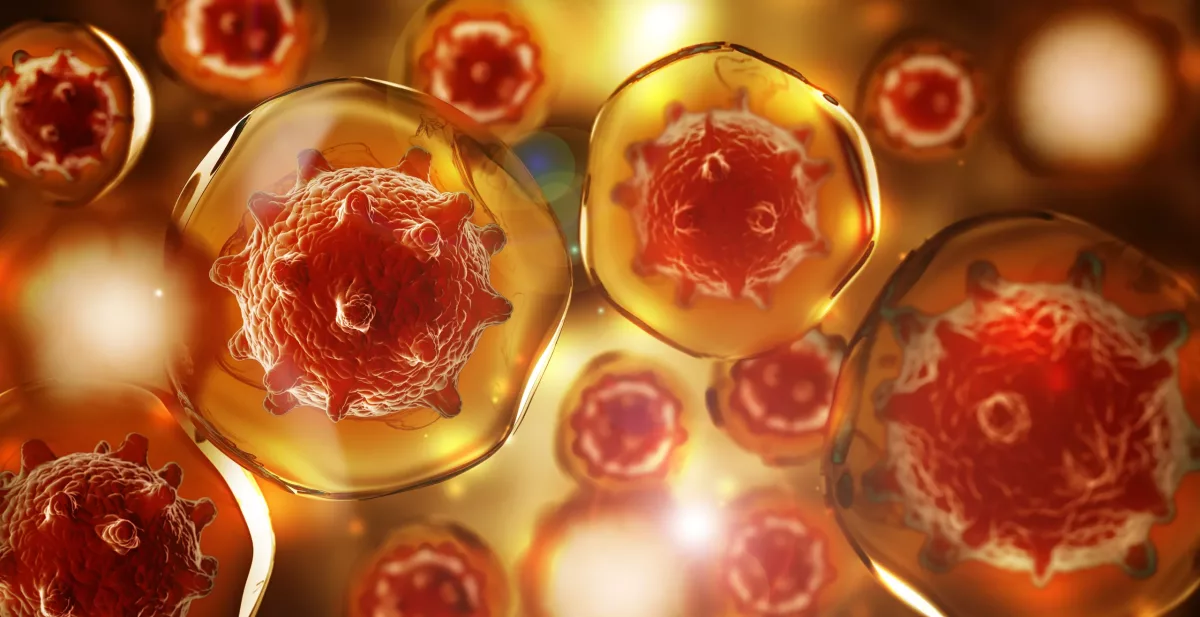There are babies that are born with little or no immune system. This condition is called severe combined immunodeficiency (SCID). However, even common or mild infections can be fatal for them because they do not have a strong enough natural defense system. While there are several options to treat this condition, a stem cell (bone marrow) transplant is the only permanent treatment.
Furthermore, SCID is a type of primary immunodeficiency disorders that suppress the immune system and prevents it from working properly. As a result, the body cannot defend itself. However, those who were born with SCID cannot fight infections or other common conditions that are often not dangerous. Without treatment, most babies with SCID die within 1-2 years.
Types of Severe Combined Immunodeficiency
In general, the immune system is the body’s built-in security system that helps detect and destroy substances that may cause harm to the body (including bacteria, viruses, fungi, protozoa, toxins, and others). It releases white blood cells (lymphocytes) to destroy them. However, there are three types of lymphocytes. For example:
- T-cells
- B-cells
- Natural killer (NK) cells
People born with SCID usually lack T-cells, which are essential for B-cells to work. In such cases, they will have problems with infections that B-cells can eliminate. Moreover, the term “combined” in the name of this disorder comes from the absence of this important combination of defense cells.
However, there are several forms of SCID that depend on which type of immune cells are missing. Moreover, all types of this disorder are very serious and, without treatment, may lead to death.
Generally, this is a rare disorder that affects about 1 in every 50,000 newborns in the U.S. each year.
Symptoms
While some babies have symptoms that parents cannot notice, others may experience the following symptoms. Examples include:
- Chronic diarrhea
- Frequent and severe infections
- Difficulty gaining weight
Usually, the immune system response of a child with SCID is poor or even absent. It also significantly increases the risk of developing multiple infections that eventually will cause severe symptoms. These include bacterial, viral, fungal, or parasitic infections. Furthermore, there are some health conditions that are more common in people with SCID. These include:
- Chickenpox
- Pneumonia
- Meningitis
- Ear infections
- Cold sores (herpes simplex)
- Yeast infections (including diaper rash, thrush, and others)
If your child experiences any symptoms, immediately contact your healthcare provider.
Causes
This is a genetic disorder, meaning it occurs due to certain genetic mutations (changes). According to some studies, there are multiple genetic mutations that may cause SCID. Therefore, these abnormal genes are passed from biological parents to their children. It may occur in an autosomal recessive or X-linked manner. However, a recessive trait occurs when the child gets the abnormal gene from each biological parent, but X-linked cases happen due to a mutation on an X-chromosome. Usually, X-linked disorders affect males because they have only one X chromosome, while females have two.
What Are The Possible Complications of Severe Combined Immunodeficiency?
Babies with SCID may experience some complications, especially if they do not get treatment for this disorder. Check below some examples:
- Frequent and severe infections (including ear infections, thrush, and others)
- Fungal or viral pneumonia
- Inability to gain weight due to chronic diarrhea
- Autoimmune disorders
- Treatment complications (including graft rejection, engraftment failure, and others)
- Increased risk of some cancers (such as hematologic malignancies, skin cancers, and others)
- Graft-versus-host disease (GVHD)
In addition, SCID is almost always fatal, especially if it is not diagnosed and treated right after birth.
How to Prevent Severe Combined Immunodeficiency?
Generally, there are no sure ways to prevent this condition. However, you can consult with your doctor about genetic counseling if you are concerned about an increased risk of passing the abnormal genes to your children in the future. It is very important to understand the risks of having children with SCID.
Diagnosis
Usually, to diagnose this condition, doctors perform a blood test. They will take a small sample of blood from the baby right after birth, usually from the child’s heel. Furthermore, all states in the United States screen every baby for SCID. It helps prevent severe infections right after birth.
Treatment
All children born with SCID need a stem cell transplant (also known as a bone marrow transplant) immediately. During this procedure, doctors will replace the baby’s stem cells with healthy ones from a donor. In other words, stem cell transplants help replace a compromised immune system with a healthy immune system.
Moreover, the best donors are family members (such as siblings who do not have SCID). If you do not have other biological children, physicians may check stem cell registries to identify a person with appropriate stem cells. While your child is waiting for new stem cells, doctors may prescribe some medications to prevent serious illnesses. These include:
- Antibiotics
- Antivirals
- IVIG infusions
- Gene therapy
However, previous medications cannot cure SCID and help children fight infections before a stem cell transplant. This procedure is the only way to cure SCID permanently. Moreover, children with SCID may need to stay in sterile isolation, in which everything that enters this space is sterilized, which makes sure it does not contain any germs.
What can I expect if my child has SCID?
Almost every time, SCID is fatal if the child does not get treatment right after birth. However, if you live in the United States, your child will be screened for SCID after birth. It helps identify this condition and take measures to prevent serious illnesses. Immediate treatment significantly increases the chances of survival.
Frequently Asked Questions
What is the life expectancy of a baby with SCID?
The survival rate of a child with SCID depends on how fast he/she gets treatment. With a stem cell transplant, this condition can be permanently cured. Without treatment, babies usually live up to 2 years old.
Can you live a normal life with immunodeficiency?
Those who receive a bone marrow transplant and make some lifestyle changes can live normal lives. Consult with your doctor for more details.
What is the primary cause of SCID?
This is a genetic disorder that occurs when specific cells develop genetic mutations (changes). These mutations negatively affect the immune system that protects our bodies from different illnesses. Ask your healthcare provider if you have additional questions.




